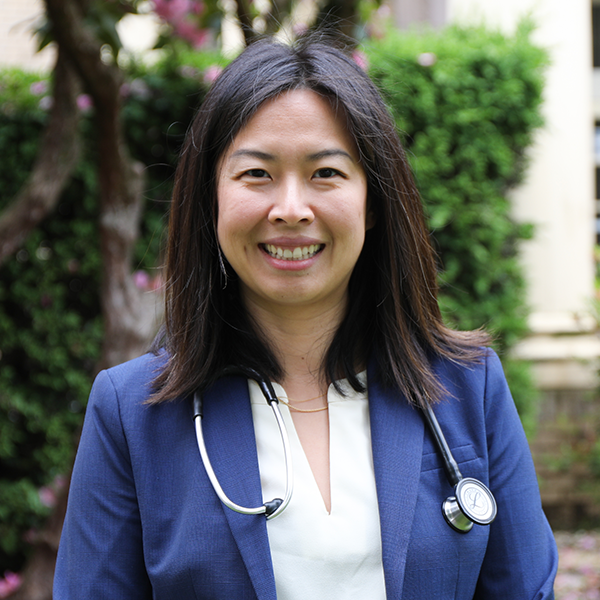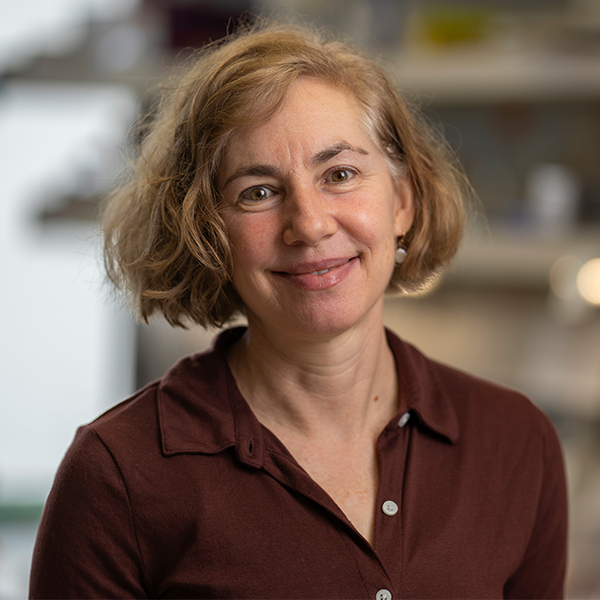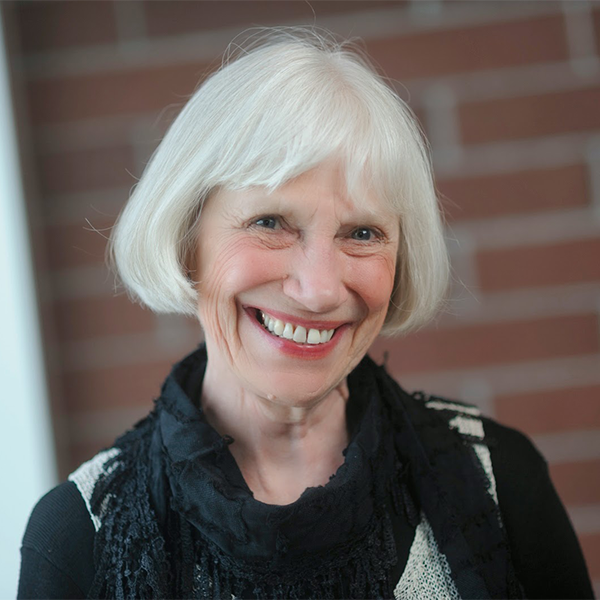Medical Research Foundation of Oregon Awards
The Medical Research Foundation of Oregon celebrates 2024's outstanding scientists
The Medical Research Foundation of Oregon has distinguished four Oregon scientists as recipients of its 2024 Mentor, Discovery, and New Investigator awards.

The MRF Committee recognizes Jane Zhu, M.D., M.P.P., MSHP, with the 2024 Richard T. Jones New Investigator Award.
Zhu is a primary care physician and associate professor of medicine in the Division of General Internal Medicine at OHSU. She is core faculty at the Center for Health Systems Effectiveness and holds a secondary appointment in Health Systems Management and Policy at the OHSU-PSU School of Public Health. She also is an adjunct Senior Fellow at the Leonard Davis Institute of Health Economics at the University of Pennsylvania.
Zhu's research centers on health care access and quality, particularly for mental/behavioral health services, as well as the effects of provider incentives and organization on health care delivery. Her work on mental health provider network adequacy, published extensively in top journals such as Health Affairs and JAMA, has highlighted challenges within Medicaid and behavioral health services. Zhu’s accomplishments highlight her exceptional potential to shape and influence health care policy at the highest levels. Her impressive achievements reflect exceptional leadership, creativity and an unwavering dedication to addressing critical issues in health care policy.

The MRF Committee recognizes Leslie Leve, Ph.D., with the 2024 Mentor Award for her exemplary work as a leader and mentor.
Leve is the Lorry Lokey Chair in Education at the University of Oregon. She also serves as head of the Department of Counseling Psychology and Human Services and is involved in the activities of the Prevention Science Institute, Leve researches child and adolescent development, especially in high-risk settings such as foster care and the juvenile justice system.
Leve is best known for her research on child and adolescent development, gene-environment interplay, and interventions for children, families and communities. This includes preventive intervention studies with youth in foster care or juvenile justice system, adoption studies that examine the interplay between biological and social influences on development, and health intervention outreach programs for communities. She co-directs a center on parenting in the context of opioid use. Leve is a highly engaged and involved mentor and spends considerable time assisting students with developing basic knowledge and skills to become independent scientists as well as more technical skills such as writing, public speaking and the skills necessary for professional success. Nearly half of Leve’s publications include a trainee as a co-author and she has been successful in helping her mentees achieve funding to accomplish their work.

The MRF Committee recognizes Karen Guillemin, Ph.D. with the Discovery Award.
Guillemin is the Philip H. Knight Chair and professor of biology in the Institute of Molecular Biology at the University of Oregon. She is American microbiologist known for her work on the role of bacteria in influencing animal development and health. She is also the founding director of the Microbial Ecology and Theory of Animals Center for Host-Microbe Systems Biology, established in 2012. She trained with renowned microbiologist Stanley Falkow, studying how the stomach bacterium Helicobacter pylori interacts with gastric epithelial cells.
Guillemin is an internationally renowned scientist who studies how microbes interact with their host organisms, especially how these relationships influence development, metabolism and immune function. Guillemin pioneered the use of zebrafish as a model for understanding these interactions, and her work aims to improve human health by learning how to manage host-microbe systems.

The MRF Committee recognizes Marie Harvey, Dr.PH., M.P.H., with the Discovery Award.
Harvey, a Distinguished Professor of Public Health and associate dean for public health at Oregon State University, also received a Discovery Award. She has spent more than 35 years researching reproductive and sexual health, focusing on unintended pregnancy, abortion and access to health services. Her work seeks to reduce health disparities and improve outcomes for diverse populations. She has published widely in the areas of risk and prevention of unintended pregnancy and STIs among high-risk women, men, and couples and the influence of relationship and contextual factors on protective behaviors and sexual risk-taking.
More recently Harvey has extended her research focus to examine the impact of new health policies and health care reforms on women’s reproductive health, abortion, and contraceptive access. She is currently principal investigator on a three-year project funded by the Society of Family Planning examining the impact of Medicaid expansion on access to and utilization of abortion services in Oregon. With more than 150 peer-reviewed articles and book chapters, Harvey’s work has profoundly influenced public health practice, theory, and policy at local, national and global levels.
The Medical Research Foundation grants these annual awards of merit to exceptional Oregon scientists and mentors. Three awards are offered: The Discovery Award, the Mentor Award and the Richard T. Jones New Investigator Awards.
The Discovery Award recognizes an Oregon investigator who has made significant, original contributions to health-related research while working in Oregon. This research can be in the basic, clinical or behavioral sciences, or it can be research in health care delivery, health informatics or health outcomes. Past recipients represent a broad spectrum of disciplines from many Oregon research institutions. (See the bottom of this page for information on how to nominate individuals for all MRF awards, including the Discovery Awards.)
- Nominations are sought from Oregon research, educational and health care institutions, individual researchers, educators and practitioners.
- Nominations must include a summary of original achievements of the nominee and a current curriculum vitae. The significance of original contributions to new knowledge and professional excellence will be primary considerations.
- The MRF Committee will review, evaluate and select the winner of the Discovery Award.
- Current members of the MRF Committee are not eligible to be nominated for the Discovery Award.
The Mentor Award is presented to an Oregonian who has provided outstanding mentorship and leadership in the support of health research, education or the advancement of health care. (See the bottom of this page for information on how to nominate individuals for all MRF awards, including the Mentor Award.)
- Nominations are sought from Oregon research, educational and health care institutions, individual researchers, educators and practitioners.
- Nominations must include a summary of the leadership and support accomplishments of the nominee and a current curriculum vitae.
- The MRF Committee will review, evaluate and select the winners of the Mentor Award.
- Current members of the MRF Committee are not eligible to be nominated for the Mentor Award.
The Richard T. Jones New Investigator Award recognizes a new investigator who shows exceptional promise early in a career in biomedical research. This individual must be within seven years or fewer of completing clinical and/or post-doctoral training and will be judged on the basis of independence, quality of science, national funding and first or senior authored publications in peer-reviewed biomedical research journals. The culmination of the research must have been performed in Oregon. (See the bottom of this page for information on how to nominate individuals for all MRF awards, including the Richard T. Jones New Investigator Award.)
Follow these guidelines when submitting a nomination for the Richard T. Jones New Investigator Award:
- Nominations are sought from Oregon research, educational and health care institutions, individual researchers, educators and practitioners.
- Nominations must include a summary of original achievements of the nominee and a current curriculum vitae.
- The MRF Committee will review, evaluate and select the winner of the Richard T. Jones New Investigator Award.
- Current members of the MRF Committee are not eligible to be nominated for the Richard T. Jones New Investigator Award.
How do I nominate?
All nominations should include:
- A nomination letter clearly specifying the award for which the individual is being nominated and addressing how the individual meets the guidelines for that award.
- The nominee's curriculum vitae.
- No more than five letters of support. Letters of support signed by more than one person are discouraged.
- All documents should be submitted at one time, as one pdf by the nominator.
- Competitive nominations will include letters from outside your institution.
Award winners will be selected by the members of the MRF Committee.
2019-2023
2019-2023
2023
Andrew McHill, Ph.D., OHSU
Richard T. Jones New Investigator Award
K. John McConnell, Ph.D., OHSU
Mentor Award
Cindy T. McEvoy, M.D, MCR, OHSU
Discovery Award
2022
Ashley Walker, Ph.D., University of Oregon
Richard T. Jones New Investigator Award
Andrey Ryabinin, Ph.D., OHSU
Mentor Award
Laurence Trussell, Ph.D., OHSu
Discovery Award
2021
Steven Shea, Ph.D., OHSU
Mentor Award
Maret Traber, Ph.D., Oregon State University
Discovery Award
Steve Reichow, Ph.D., Portland State University
Richard T. Jones New Investigator Award
2020
Aaron Caughey, M.D., M.P.P., M.P.H., Ph.D., OHSU
Mentor Award
Cary Harding, M.D., OHSU
Discovery Award
Luiz Bertassoni, D.D.S., Ph.D., OHSU
Richard T. Jones New Investigator Award
2019
Jonathan R. Lindner, M.D., OHSU
Mentor Award
Peter G. Barr-Gillespie, Ph.D., OHSU
Discovery Award
Bo Sun, Ph.D., Oregon State University
Richard T. Jones New Investigator Award